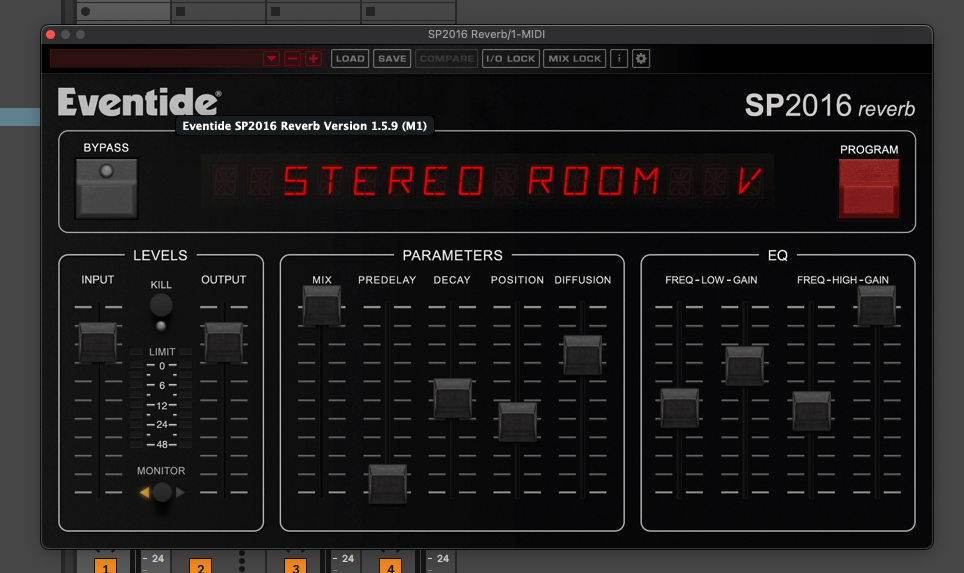The floodgates are open, and not only are we seeing new Apple hardware, but M1 native plug-ins to take advantage of it, too. Eventide is the latest, bringing a massive arsenal of essential stuff. And the fact they run on iLok suggests more iLok-based plug-ins from other vendors are likely inbound soon, too.
DAWs are mostly easy – especially if you use something like Apple’s own Logic, which is M1 native. (I’m also running Ableton Live’s public 11.1 beta and haven’t looked back.) So as it has in the last 30 years of Mac processor transitions, stuff like plug-ins is what probably holds you back from upgrading.
That’s why this is great news. Eventide’s full software range of plug-ins (AU, VST2, and VST3) now all support Apple Silicon M1 natively. (They’re universal builds, so you can swap between machines and hosts easily.) They also support macOS Monterey and Windows 11. Only AAX is missing – because, well, Avid. (Biting my tongue.)
That’s a lot of great stuff – H3000, H9 series (Blackhole and MangledVerb and UltraTap), the excellent Anthology, Omnipressor, the H910 and 949 harmonizers, Ultraverb, and Tverb, to name a few. Newfangled and their Elevate Mastering Bundle just missed the cut, but I’m already running pre-release software successfully from that suite and those downloads should be available soon.
It’s silky smooth, which is what you want from everyday plug-ins that you live with.
By the way, if you want to check if the plug-in is running as M1 native, you can just hover your mouse over the Eventide logo and see – it’ll show M1 if it’s running natively (as here in Ableton Live 11.1 beta):

(You can also get obsessive and right-click and copy the support information.) Newfangled’s works the same way, and just shows ARM instead of M1.

Look, the honest truth is – you can get by just fine with Rosetta 2 and a lot of plug-ins. With a mixed array of plug-ins, it’s just that you tend to mistrust the ones that haven’t been updated – not so much because they’ll run slowly as they’ll have some unpredictable UI or loading glitches.
When developers do deliver M1-native versions, it’s hard not to miss that things run faster, smoother, and you just stop looking at CPU meters even on the non-Pro/Max M1 like this Mac mini I’m typing on now. And that’s keeping in mind the Mac mini is an entry-level machine. (More on the M1 Pro and M1 Max soon.)
I realize these are generalizations, but in day-to-day usage, they’re probably what you’ll actually experience. Most plug-ins work. Occasionally ones that weren’t updated cause an issue here. People with more plug-ins notice this more than those with fewer. Updated plug-ins are a joy. It’s not only about the new architecture; it’s also about finding updates that are tested on the newer OSes shipped on newer machines.
What some developers have reported is that they aren’t able to ship M1-native versions yet because they’re waiting on iLok and PACE. Those details aren’t generally public, but it does sound like this is slowly getting fixed.
“iLok” is something of a four-letter swear word for a lot of music producers, but what this means in practice is running the iLok License Manager software (directly or via a pop-up), clicking authorize, and then (hopefully) forgetting about it. This does not normally mean using a USB hardware dongle – unless you actively choose to do so. These days, most iLok users choose the software over the hardware. It certainly works fine here. I don’t particularly like iLok any more than you do, but even with a small plug-in library, it’s unavoidable – and I am absolutely not giving up software from developers like Eventide, Softube, Soundtoys, and others.
Here’s how it works:
- You will (almost certainly) need to download a new installer that’s Universal – both for Intel and (ARM) Apple Silicon.
- You can authorize with iLok License Manager, even though that’s still Intel-based. It runs under Rosetta 2 without incidence.
- Launch an Apple Silicon-native DAW – like Logic or Live 11.1 beta – in its native mode, and your plug-ins will run natively, too.
But if you suddenly notice a bunch of plug-ins appearing, I’m guessing iLok improvements are helping. Different developers use different parts of PACE’s technology, and developers do then have to work updates and testing into their development process. That means be a little patient – especially with small developers; they take more time.
And yes, since I can feel a bunch of plug-in developers who don’t use PACE rolling their eyes at me, a lot of devs manage copy protection themselves and didn’t hit this hurdle. (A great example is Audio Damage, who were one of the first out of the gate with full M1 support – and of course I love their stuff.)
But since we do use systems with different stuff on them, a lot of producers and engineers do rely on a critical mass of plug-ins becoming available. So this is good news.
And yeah, on the PC side, watch for Windows 11 support before you jump to the new OS. (That’ll be easy enough given how generally delayed computer shipments are, so hey…) ]
https://www.eventideaudio.com/plug-ins/